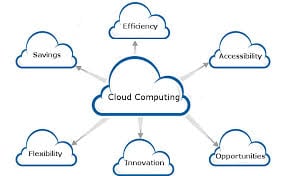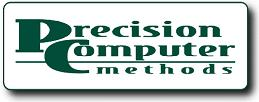How many of you have ever heard of Sage Accounting Software? Seriously, how many of you have ever heard of Sage? They make some of the best accounting software on the planet, but their marketing has been ineffective. Just think about how many non-franchise small businesses there are with 0-25 employees in the USA alone. What is your guess, 5 hundred thousand, 1 million, more? Sage has over 6 million customers worldwide, but so far only 10,000 businesses have signed up for Sage One, the latest Sage offering targetted specifically for small businesses. .
_________________________________________________________
Sage One Complete: Cloud based accounting system for SMB's
Posted by PC Methods on Sat, Jul 30, 2022 @ 10:00 PM
Tags: Cloud Computing, Small Business, Peachtree, quickbooks Pro, Accounting systems
History of Accounting Systems since Before Da Vinci
Posted by Peter Heinicke on Wed, Jul 28, 2021 @ 10:43 AM
How Accounting Has Been Changed Over Time By Technology
Luca Pacioli (1494) was the first to describe the systems of debits, credits, journals and ledgers. Pacioli's writings are the basis of modern accounting. Summa de Arithmetica, Geometria, Proportioni et Proportionalita ("Review of Arithmetic, Geometry, Ratio and Proportion"), a twenty-seven page treatise on double-entry accounting, was one of the first items to be published on the Gutenberg printing press. Leonardo da Vinci was one of Pacioli's students in Milan.
Tags: Cloud Computing, Small Business, quickbooks Pro, Accounting systems
If you purchased or upgraded an ERP system less than 2 years ago, chances are great that in 5 to 6 years when you upgrade, you will upgrade to a cloud based system. So, what does that mean:
Tags: Backup to the cloud, Cloud Computing, ACCPAC, SAAS, Accpac Online, As a Service, AAS, IAAS, XAAS, NAAS, CAAS, HAAS, PAAS
It’s well known that enterprise resource planning (ERP) software increases productivity and efficiency by integrating vital internal and external business functions.
And for many businesses, Sage Accpac is the ERP software of choice because of its ease of use, depth of functionality, adaptability to changing business environments, and scalability to manage growth.
However, the upfront IT costs of an in-house implementation of Accpac can be prohibitive, particularly for young, growing businesses. Fortunately, Accpac is available as an off-premises, hosted, Cloud solution—eliminating the need for expensive software and hardware investment.
Benefits of Sage Accpac
Sage Accpac helps disparate business functions coordinate to increase performance across the board. Working seamlessly with Windows XP, Vista, or Windows 7 and numerous databases (e.g. Pervasive, Oracle, MS SQL), Accpac synchronizes all information so that all employees in each functional area of your company are working together to achieve maximum efficiency.
Sage Accpac applications include:
- operations and distribution management
- accounting and financial management
- payroll management
- global operations management
- services and project management
- customer relationship management (Version 6 is integrated with Sage’s award-winning CRM solution.)
- human resource management.
Not only will Sage Accpac aggregate information and supply it to all stakeholders, it provides analytic tools to empower informed decision making at the rapid pace demanded in today’s fast-moving business environment. As a specific example, consider how instant integration of human resources, project management, and customer relationship management can allow you to provide more accurate project price quotes.
Another key benefit of Accpac on the Cloud is that—due to its “pay for what you use” model—it’s easily scalable as your company grows. That’s true even if you expand internationally, because the software works with numerous currencies and five languages.
Implementation Steps
Although the Cloud-based Accpac is relatively easy to put into operation, it pays to work with a Sage Certified ERP consulting and services firm that can help ensure you get the package you need and then educate your employees on how to get the most benefit from the software.
Your employees won’t have to be “techies” to effectively use Accpac if they receive the proper instruction, including in-person training, online help, user manuals, and procedure guidelines.
The Bottom Line
You can improve your company’s efficiency—and therefore its profitability—by linking together all the moving parts of your business with the top-rated Sage Accpac ERP solution. And with the Cloud version, there’s no need for the bulk of the expense to be incurred at the outset. You can benefit from using Accpac now—and as your business grows. Talk with an PC Methods about how you can take advantage of this opportunity. The latest version of Accpac is Sage 300 ERP.
Tags: Sage Accpac, Cloud Computing, ACCPAC ERP, Sage 300 ERP, ERP systems, quickbooks Pro
- Built in security, reliability & upgradeability
- Minimized risk involving application development and implementation
- Web-services integration
- Analytics, offline access and mobile deployment
- Speed application development
- Automated upgrades & real-time reporting
- Multiple languages and currencies
In conclusion, cloud computing is a viable option in today's business environments. Given more time there will certainly be more standards and assurance for the consumer. Our best advice would be to research potential vendors thoroughly, check references, start slow, and read your contract carefully. Additionally you'll want to determine how you plan on using the cloud and in what ways it will be the most beneficial to your organization.
Tags: Cloud Computing, St. Charles Cloud Computing, ACCPAC ERP, SAAS, SAGECRM.COM




-resized-600.jpg)

